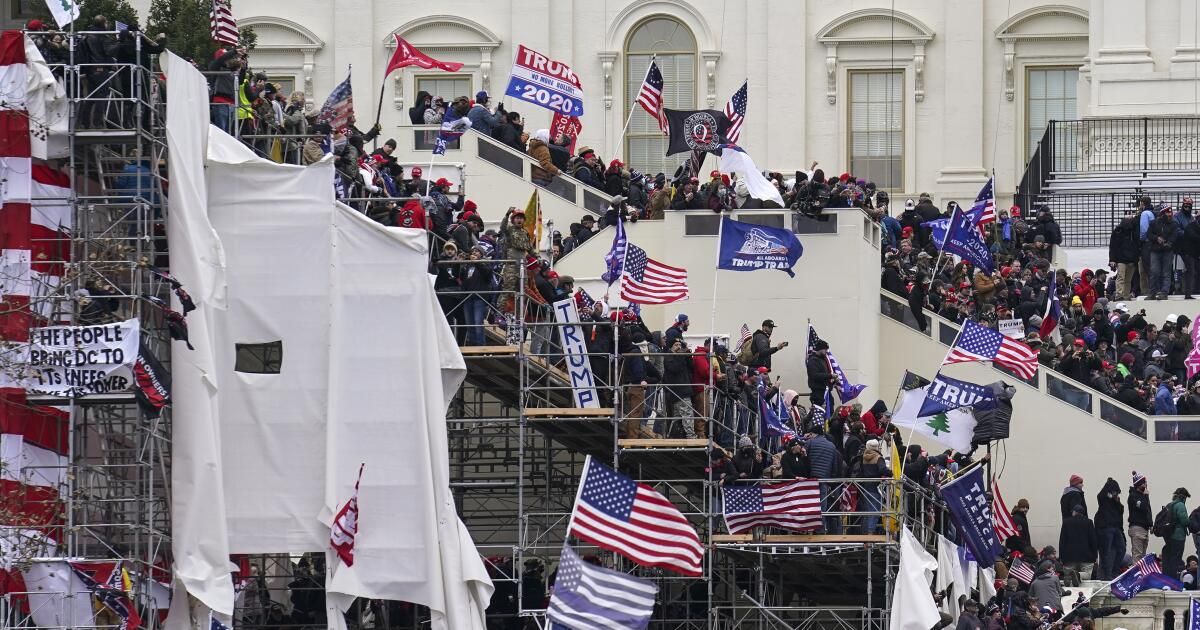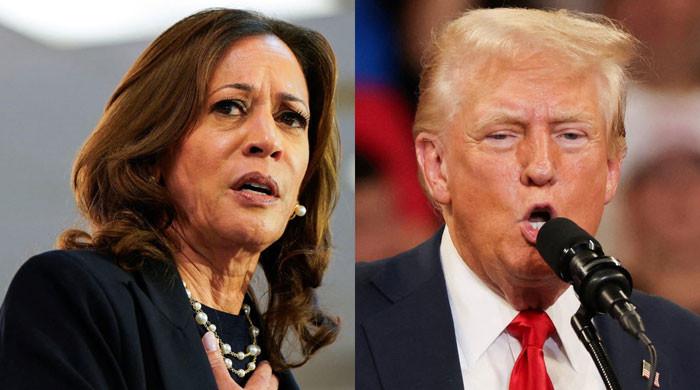Donald Trump has warned the United States: if he loses the presidential election, he reserves the right to encourage his followers to fight.
When Time magazine asked Trump if the election would end in political violence if he lost, the former president responded: “If we don't win, you know, it depends. “It always depends on the fairness of an election.”
“If everything is honest, I will gladly accept the results,” he later told the Milwaukee Journal Sentinel. “If not, we must fight for the rights of the country.”
When Trump says “it depends,” here's the problem: He has never competed in an election that he recognized as fair.
Even when he won the 2016 presidential election, he claimed that Hillary Clinton and Democrats rigged the count to prevent him from a landslide victory in the popular vote, claiming without evidence that millions of noncitizens had voted in California. The official investigation he ordered found no significant irregularities.
In 2020, when he lost to President Biden by 7 million votes, Trump not only claimed the result was illegitimate; He worked for months to overturn it, demanding that state officials “find” thousands of new votes in his favor. When his legal challenges failed, he summoned his supporters to Washington and urged them to march on the Capitol.
“If you don't fight like hell, you won't have a country anymore,” he told them. The mob responded by invading the building.
He returned to that apocalyptic theme last week, telling supporters in Wisconsin that if Biden wins a second term, “we won't have any country left.”
“Joe Biden is destroying our country,” Trump said at a rally. “The internal enemy is more dangerous than China and Russia. … In fact, I think our country is not going to survive.”
It was as if he was preparing his followers to take extreme measures if he does not prevail.
And it was part of a long pattern. In January he warned that if his four criminal indictments prevented him from winning, the result would be “chaos in the country.”
“It is the opening of a Pandora's box,” he warned.
In March, he posted a video to his social media account showing an image of Biden tied up like a prisoner.
And for months he has extolled defendants convicted of violent crimes in the Jan. 6, 2021, insurrection as “hostages,” promising to forgive many or all if he is re-elected.
“He is telling us what his intentions are, as he did before January 6,” Juliette Kayyem, a terrorism expert at Harvard University, said recently on PBS. “Language is the language of incitement. … If he loses, we certainly know from what Trump has said – and we also know from what the FBI tells us – that there are large groups and organizations that are preparing to continue the fight.”
As things stand in the presidential campaign, that kind of 2020-style crisis may not happen again, since Trump has a good chance of winning.
The average of public opinion polls published by fivethirtyeight.com shows a tie in the national popular vote, but shows that Trump won the six largest swing states: Arizona, Georgia, Michigan, Nevada, Pennsylvania and Wisconsin.
Trump took advantage of a day off from his criminal trial in New York on Wednesday to campaign in Michigan and Wisconsin, where he returned to his warnings about an unfair election process.
“Radical left Democrats rigged the 2020 presidential election,” he falsely claimed once again. “We are not going to allow them to manipulate the 2024 presidential election. We will not have any country left… 2024 is our final battle.”
For months, Biden has tried to remind voters that Trump, if re-elected, would trample on the norms of American government and politics.
“Democracy is at the polls,” the president often says.
By reminding voters that he does not accept the duty to recognize the result of an election he loses, Trump has paradoxically strengthened Biden's argument.
For some voters, this choice may come down to a choice between preserving democracy and hoping for a return to the low inflation of the Trump years. It may not be an easy choice for you.
A poll last year by the Public Religion Research Institute found that 38% of Americans believe the country needs “a leader who is willing to break some rules if that's what it takes to fix things.” That substantial minority included 48% of Republicans.
When the Time reporter asked Trump if his rhetoric about overriding the Constitution and ruling as a “dictator for a day” could alienate voters, the former president disagreed.
“I think a lot of people like it,” he said.
Unfortunately, you are right.












